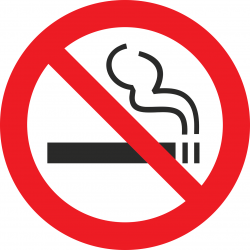7 Things to Expect in Inpatient Rehab
Entering any sort of hospital setting can create a heightened sense of anxiety. This is particularly true for people beginning the long journey into recovery from alcohol or drug addiction. Knowing what to expect during an inpatient rehabilitation stay can help ease some of the worry surrounding this important first step toward lasting recovery.
If you have more questions, or wish to speak with a specialist, call our helpline at 888-414-2380 (Who Answers?) .
Intake Procedures
When you first arrive at the rehab center, someone will assist you through the intake process. Of course, this will consist of filling out necessary paperwork, providing insurance information and the like. However, often it also involves a search of the patient’s bags to insure no drugs, alcohol or other substances are being carried into the hospital setting. The intake worker will also review rules and procedures to be followed during your stay.
Roommates
Generally, in-patient facilities offer rooms with two or more patients to a room. While some centers offer private rooms, many rehabs prefer room sharing. Addicts tend to isolate and often have difficulty navigating relationships. Sharing space and getting close to others in recovery is an important part of the journey to wellness.
Chores
Some centers require patients to participate in certain chores. With addiction, responsibility has often become a lost art. Helping patients to assume small responsibilities like taking out trash and cleaning community restrooms can be a small step toward rebuilding a sense of self-care. These skills also serve in the quest for a healthier lifestyle long after you check out of the rehab facility.
Smoke-Free Environment

Most rehabs don’t allow smoking indoors.
Most rehabs offer smoking areas outside, but require indoor areas to be smoke-free. For patients beginning recovery, a healthy smokeless environment removes any distraction. Often, addicts use cigarettes to cope with painful emotions and stressful situations. The goal of the rehab journey is to uncover these feelings and help people face their deepest, darkest fears without the aid of any chemicals.
Group Dynamics
Other patients and sometimes patients who have recently graduated attend group therapy sessions together. Usually, one counselor acts as a facilitator leading discussions. By talking and discussing specific positive techniques of coping in sobriety, addicts learn new skills for coping with the ups and downs of life without self-medicating. Some discussion topics may include:
- Anger management
- Spiritual beliefs
- Childhood trauma
- Relationships
- Depression
- Dealing with Cravings
- Watching for Behavioral Triggers
Free Time
While there is not very much free time in the scheduled rehab day, there will be some moments of down time. Many patients enjoy reading or watching specific television shows in the evening. There are also sometimes recreational activities available like basketball, exercise equipment, board games, or arts and crafts. Each rehab offers different amenities and generally encourage exercise and positive hobbies.
Healthy Menus
Inpatient rehab counselors recognize the importance of physical recovery, in addition to the emotional and spiritual work required. Inpatient rehab centers plan healthy menus, bearing in mind that addicts and alcoholics usually arrive in a malnourished state. Improving diet is one of the main goals of the nutrition department in a healthy rehab center.
To learn more about inpatient rehab centers, call 888-414-2380 (Who Answers?) .
Resources
Mojtabai, R. & Zivin, J. (2003). Effectiveness and cost-effectiveness of four treatment modalities for substance disorders: A propensity score analysis. Health Services Research. 38: (1 Pt. 1) 233-259. Retrieved on March 1, 2017 from: https://www.ncbi.nlm.nih.gov/pmc/articles/PMC1360883/
NIH (2012). Principles of drug addiction treatment: A research-based guide (Third edition). National Institute on Drug Abuse. Retrieved on March 1, 2017 from: https://www.drugabuse.gov/publications/principles-drug-addiction-treatment-research-based-guide-third-edition/drug-addiction-treatment-in-united-states/types-treatment-programs












